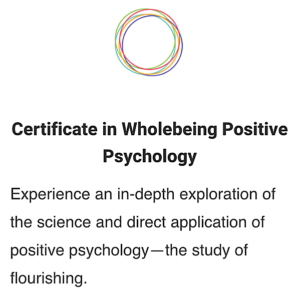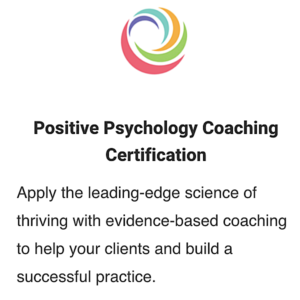by Bruce Sherman
Virtually every aspect of the practice of law, ranging from the personal well-being of lawyers to law school education to specific practice areas, can benefit from the practice of mindfulness and positive psychology.
Lawyers are professional pessimists. They regulate their emotions in order to be effective. Too often, lawyers are in the uncomfortable state of psychological tension, called cognitive dissonance, that occurs when behaviors contradict attitudes, feelings, or beliefs. Lawyers must consistently spend energy reconciling the difference between what they believe is right and what their job requires of them. Perhaps as a result, they are 3.6 times more likely to be depressed than the general population.
We can eliminate the tension created by cognitive dissonance by modifying how we think about our actions and the consequences of our behavior—that is, by lying to ourselves or others, or engaging in corrupt behaviors. Or, we can adjust our activities, attitudes, or beliefs in ways that are consistent with our values and self-image—reframing in a positive light that opens the door to personal and professional awareness and authenticity.
Evidence-based research on positive psychology and mindfulness can provide insight and guidance, promoting a more contemplative practice of law that can result in reduced stress and pessimism and better physical, emotional, mental, and spiritual health and well-being among lawyers, their clients, and their communities.
Positive Psychology and Family Law
In a narrow sense, family law is a set of rules that governs family life and familial conflicts. In a broader sense, family law is about the role of law in defining family ideals and shaping family life. The rules are typically binary and conflict-oriented, placing individuals either in or out of the family and in such a way that increases rather than decreases conflict. Another way of viewing family law is in terms of rupture and repair. Rupture is the breaking apart of families (voluntarily or involuntarily, for good reasons or bad reasons), while repair is attending to the emotional aspects of family relationships (even though the legal relationship may change).
Research done by Clare Huntington shows that family law today focuses on rupture without regard to the importance of repair. She believes that positive psychology provides a metric along which to measure family well-being. Linking positive psychology and family law allows us to think about building institutions and structure that cultivate the conditions that lead to human flourishing, greater well-being, and stronger communities.
Learned Optimism for Lawyers
Optimism is understood to be a reasoned, cognitive process, which can be learned and consciously applied. Optimists are seen as being better able to practice coping techniques, and generally enjoy better health, better moods, higher morale, greater achievement, and greater academic achievement. (Ironically, law school is an exception: At least one study indicates that pessimists are more successful than optimists in law school.) Learned optimism is one possible solution to the problem of associates leaving law firms: 40 percent of highly paid associates at large firms leave within three years, nearly 60 percent leave within five years. Many of the demands on associates at large firms, including billing requirements, time constraints, and hierarchal work teams, could be addressed or alleviated by learned optimism.
Creating authentic happiness in law firms is another part of the solution. Positive psychology teaches that authentic happiness comes from identifying your most fundamental strengths and using them every day. In their study on lawyers and pessimism, Martin Seligman, known as the father of positive psychology, and Paul Verkuil, the former dean of Cardozo Law School, proposed the following remedies: help associates identify their signature strengths and exercise them in their daily practice, develop flexible optimism by cultivating learned optimism, and mitigate the adversarial nature of litigation.
Shaping a Healthier Law School Experience
Few would dispute that stress and anxiety are the major hallmarks of law school. One study found that 44 percent of law students meet the criteria for clinically significant levels of psychological distress.
A program of positive psychology interventions for students, implemented at the very beginning of their law school experience, could help them develop habits and routines to cope with stress and depression. Such a program would include the practice of learned optimism. Law schools could also encourage social connections, which have proven positive effects on well-being, instead of the typical paradigm of competition and isolation. Positive psychology practices could also help law students feel a greater sense of control and create appropriate levels of creative challenge, or flow.
Emphasizing law students’ strengths and optimism will only enhance their ability to cope with stress, create lifetime tools, and become better and happier lawyers.
This post was originally published on the Kripalu blog, Thrive, and is reprinted by permission.
Bruce Sherman, JD, is a litigator who has successfully resolved more than 300 cases in federal court over 35 years in practice. He is also a yoga teacher who holds a Certificate in Positive Psychology from the Wholebeing Institute. Bruce coteaches Mindfulness for Lawyers, August 7–9 at Kripalu Center for Yoga & Health, with Jurian Hughes and WBI’s Maria Sirois.


 Bruce Sherman, JD, is a litigator who has successfully resolved more than 300 cases in federal court over 35 years in practice. He is also a yoga teacher who holds a Certificate in Positive Psychology from the Wholebeing Institute. Bruce coteaches
Bruce Sherman, JD, is a litigator who has successfully resolved more than 300 cases in federal court over 35 years in practice. He is also a yoga teacher who holds a Certificate in Positive Psychology from the Wholebeing Institute. Bruce coteaches 



Bruce you are a gem! Rare and precious, as accomplished lawyer with a sparkling personality an incredible sense of humor, and a heart bigger than Texas. You’re one of those people that whenever I think of you, my soul sings a sweet tune. I’m so glad you’re coteaching this course soo…oooo…oooo needed course to connect lawyers with practices that will help them flourish. Best wishes! I’ll be thinking of you on August 7-9th!
Great post!
This design is wicked! You obviously know how to keep a reader amused.
Between your wit and your videos, I was almost moved to start my own blog (well, almost…HaHa!) Wonderful job.
I really enjoyed what you had to say, and more than that, how you presented it.
Too cool!